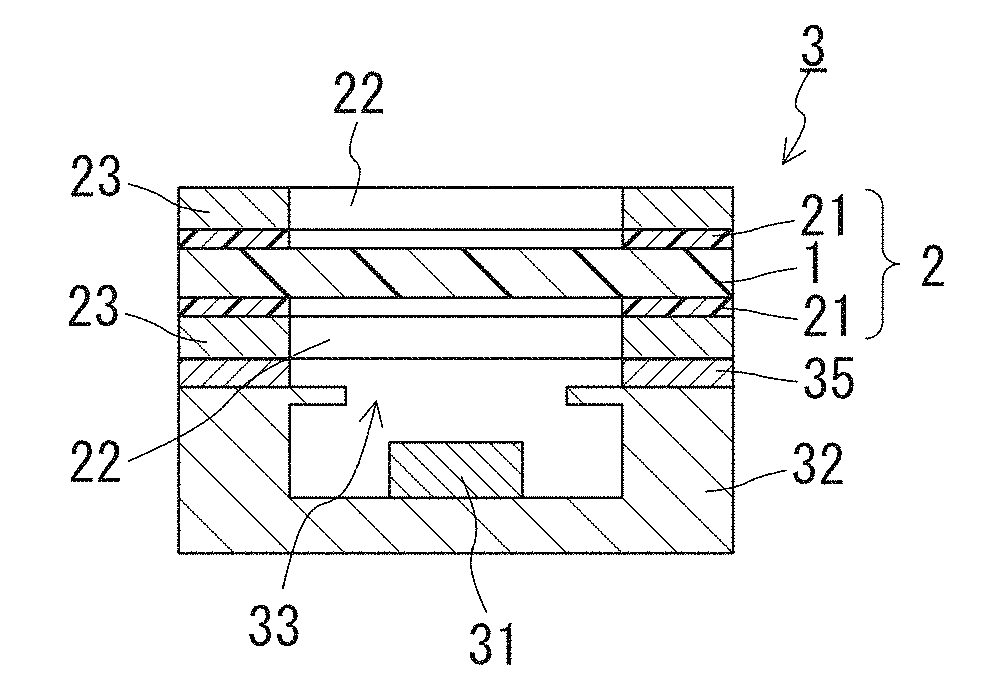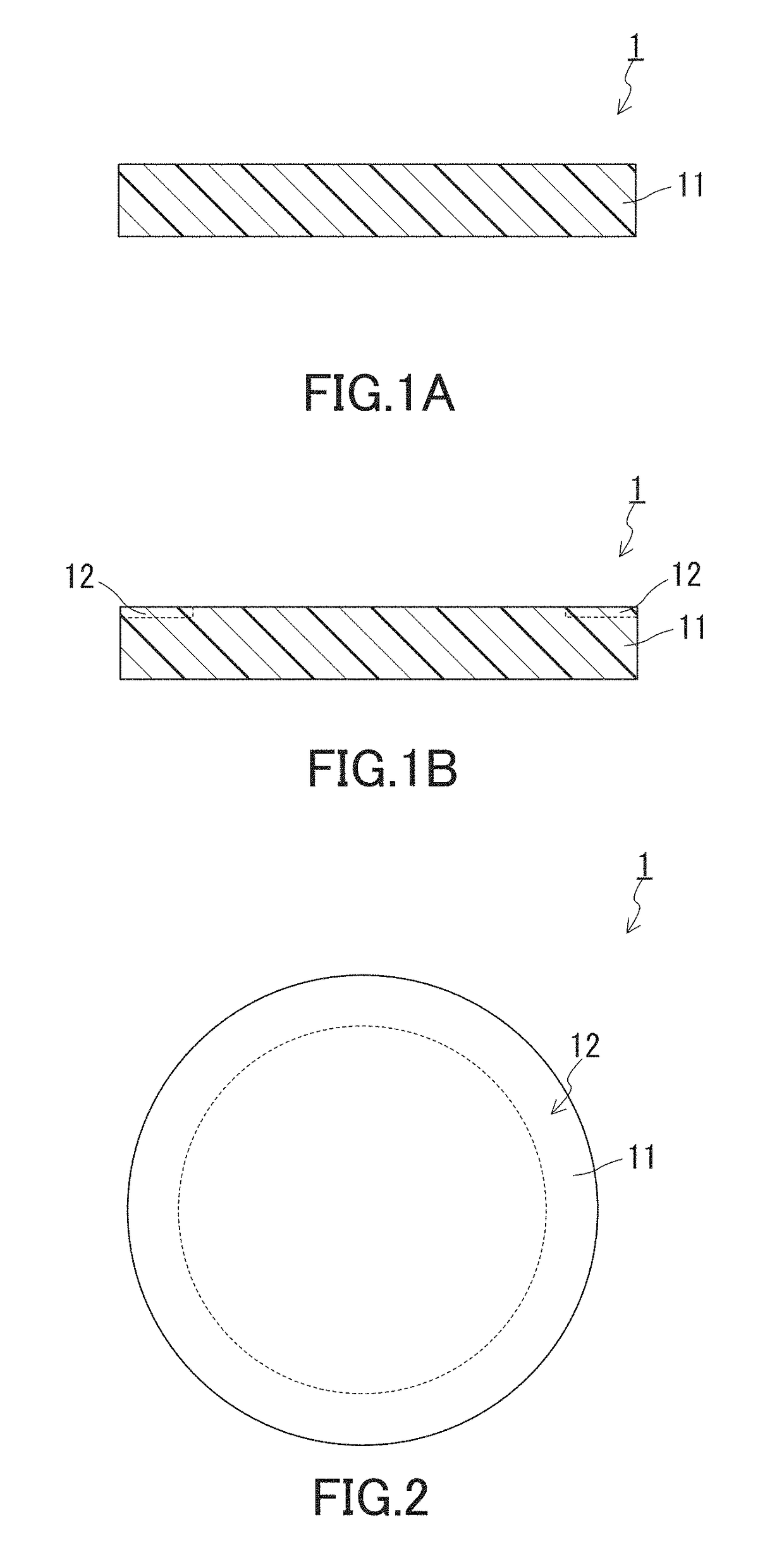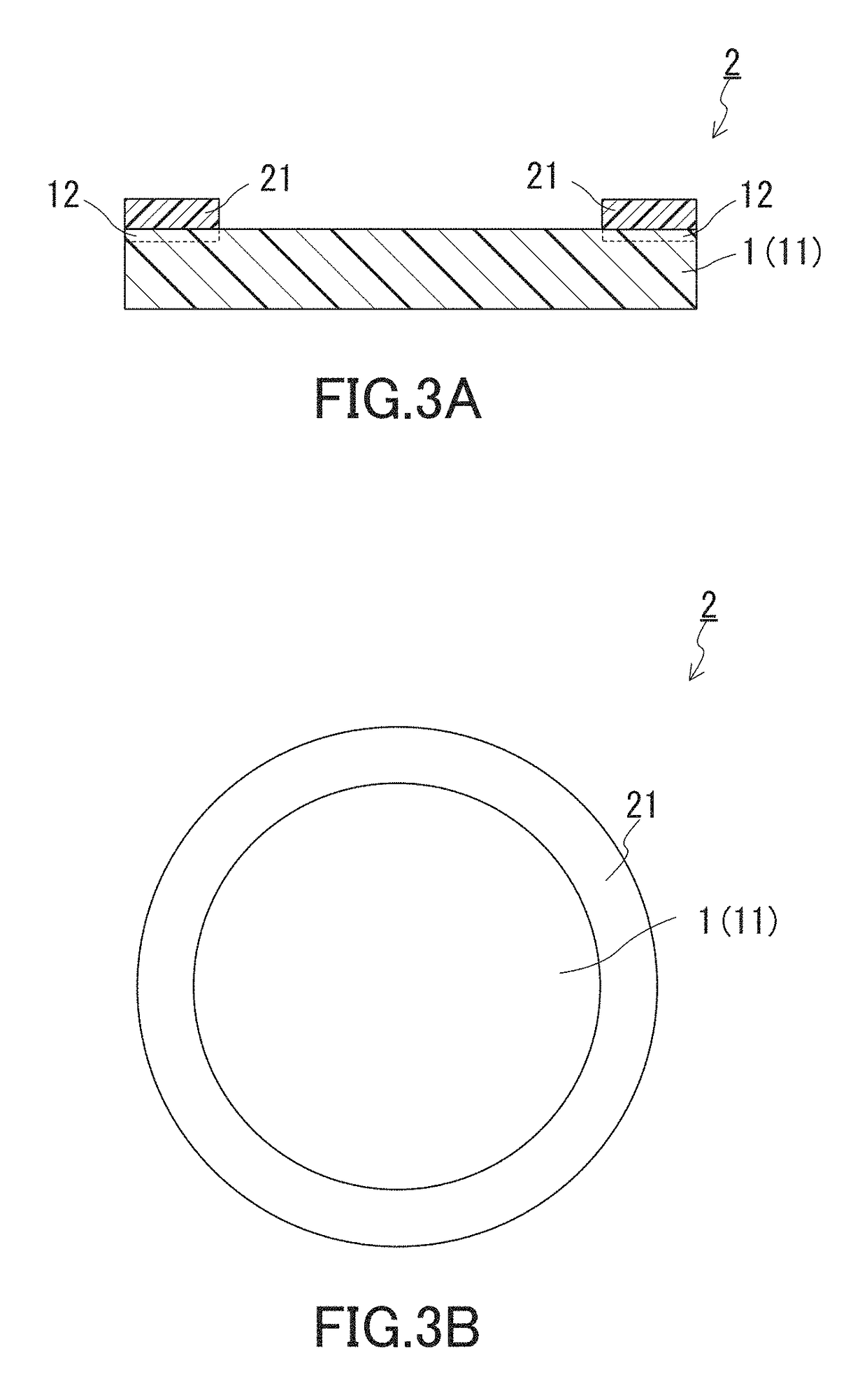Sound-permeable membrane, sound-permeable membrane member including same, microphone, and electronic device
a technology of membrane and membrane, applied in the direction of subaqueous transducers, electrical transducers, mouthpiece/microphone attachments, etc., can solve problems such as failure of microphones, and achieve excellent properties
- Summary
- Abstract
- Description
- Claims
- Application Information
AI Technical Summary
Benefits of technology
Problems solved by technology
Method used
Image
Examples
example 1
[0193]To a PTFE dispersion (containing 40 mass % of a PTFE powder with an average particle diameter of 0.2 μm and containing 6 parts by mass of a nonionic surfactant relative to 100 parts by mass of PTFE) there was added a fluorinated surfactant (Megaface F-142D manufactured by DIC Corporation) in an amount of 1 part by mass relative to 100 parts by mass of PTFE. After the addition, a strip-shaped polyimide film (thickness: 125 μm) was dipped in, and withdrawn from, the PTFE dispersion to form a coating of the PTFE dispersion on the film. The thickness of the coating was controlled to 20 μm by means of a metering bar. Next, the entire film with the coating was heated at 100° C. for 1 minute and then at 390° C. for 1 minute to evaporate and thereby remove water from the dispersion and at the same time to bind the remaining PTFE powder particles together and thereby form a PTFE film. The dipping and heating were further repeated twice, after which the PTFE film was separated from the ...
example 2
[0198]A PTFE molding powder (TFEM-12 manufactured by DAIKIN INDUSTRIES, LTD.) in an amount of 100 parts by mass was charged into a mold having the shape of a cylinder having a height of 800 mm and an inner diameter of 200 mm (it should be noted that the bottom of the cylinder was closed) and was preformed under a pressure of 280 kg / cm2 (27.5 MPa) for 1 hour. Next, the resulting preformed product of PTFE was removed from the mold, and then sintered at a temperature of 360° C. for 48 hours to give a PTFE block in the shape of a cylinder having a height of about 500 mm and an outer diameter of about 200 mm. This block was then placed in a stainless steel vessel having a height of 700 mm and an inner diameter of 200 mm, and the inside of the vessel was purged with nitrogen. After that, the block was further sintered at a temperature of 340° C. for 20 hours to obtain a cylindrical PTFE block to be cut.
[0199]Next, the obtained PTFE block was cut with a cutting lathe to obtain a 25-μm-thic...
example 3
[0204]A cast PTFE film (thickness: 25 μm) was obtained in the same manner as in Example 1. Next, the cast film obtained was calendered by a rolling machine having a pair of metal rolls held at 170° C. to orient PTFE in the film and thereby form a non-porous, calendered PTFE film (thickness: 10 μm). The entireties of both principal surfaces of the calendered PTFE film thus formed were then subjected to a surface modification treatment using sputter etching at an energy of 15 J / cm2 in an argon gas atmosphere. A sound-permeable membrane of Example 3 was thus obtained. The calendering direction corresponds to the MD direction of the sound-permeable membrane.
[0205]The air permeability of each of the sound-permeable membranes fabricated in Examples 1 to 3 was evaluated in terms of Frazier air permeability as specified in JIS L 1096. The value of the air permeability was zero, which confirmed that these sound-permeable membranes had no air permeability and hence that they were non-porous f...
PUM
| Property | Measurement | Unit |
|---|---|---|
| insertion loss | aaaaa | aaaaa |
| frequency | aaaaa | aaaaa |
| diffraction angle 2θ | aaaaa | aaaaa |
Abstract
Description
Claims
Application Information
 Login to View More
Login to View More - R&D
- Intellectual Property
- Life Sciences
- Materials
- Tech Scout
- Unparalleled Data Quality
- Higher Quality Content
- 60% Fewer Hallucinations
Browse by: Latest US Patents, China's latest patents, Technical Efficacy Thesaurus, Application Domain, Technology Topic, Popular Technical Reports.
© 2025 PatSnap. All rights reserved.Legal|Privacy policy|Modern Slavery Act Transparency Statement|Sitemap|About US| Contact US: help@patsnap.com



